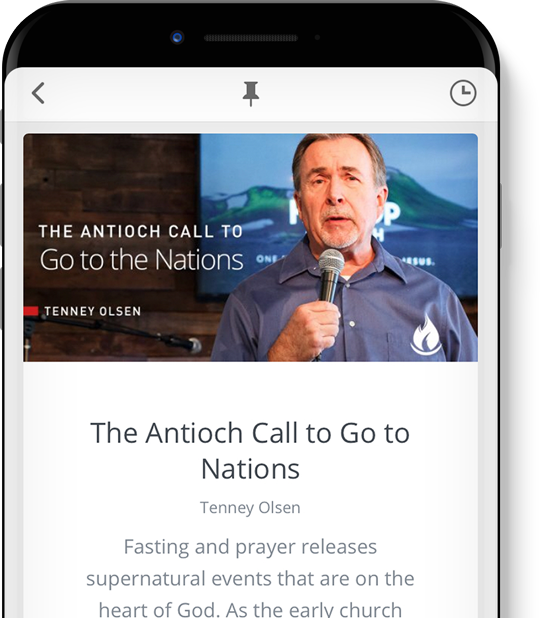The apostles self-isolated between Jesus’ ascension and Pentecost. You can steward your time in quarantine as they stewarded their time in the upper room.
“You can get so confused that you’ll start in to race
down long wiggled roads at a break-necking pace
and grind on for miles across weirdish wild space,
headed, I fear, toward a most useless place.
The Waiting Place…
…for people just waiting.
Waiting for a train to go
or a bus to come, or a plane to go
or the mail to come, or the rain to go
or the phone to ring, or the snow to snow
or the waiting around for a Yes or No
or waiting for their hair to grow.
Everyone is just waiting.
Waiting for the fish to bite
or waiting for the wind to fly a kite
or waiting around for Friday night
or waiting, perhaps, for their Uncle Jake
or a pot to boil, or a Better Break
or a string of pearls, or a pair of pants
or a wig with curls, or Another Chance.
Everyone is just waiting.” [3]
Do you recognize these words? They come from one of my three-year-old son’s favorite books: Oh, the Places You’ll Go! by Dr. Seuss. Even if the words are not familiar, perhaps the sentiment is.
In fact, maybe the sentiment is all too real at the moment. I don’t need to tell you that right now, it seems like the whole world is “the waiting place.” Waiting for a new vaccine and waiting to leave quarantine and to see our friends and to get un-slumped and to hear “All-clear!” from Donald Trump. Everyone is just waiting.
But in truth, “the waiting place” is not a “most useless place.” The Bible is filled with passages about intentional, purposeful, productive waiting. “Wait on the LORD; be of good courage, and He shall strengthen your heart…” (Psalm 27:14). “…But those who wait on the LORD, they shall inherit the earth” (Psalm 37:9). “But those who wait on the LORD shall renew their strength; they shall mount up with wings like eagles, they shall run and not be weary, they shall walk and not faint” (Isaiah 40:31).

In fact, the Jewish calendar even contains a 49-day waiting period called the counting of the Omer (or just “the omer”) which God instructed the Jewish nation to observe annually. And guess what? We’re in the middle of it right now, as were the apostles when they tarried in Jerusalem to receive the promised Holy Spirit on Pentecost (Luke 24:49). What insights can we apply from this God-given season of waiting in order to make our time in the “waiting place” a little less “useless”?
The counting of the Omer separates two Jewish holidays: Early Firstruits (the day after Passover and the beginning of the barley harvest) and Latter Firstfruits. Latter Firstfruits bears many names, including “the Feast of Weeks,” “Shavuot,” and the more familiar Greek name: “Pentecost.” Based on Deuteronomy 16:9-11, Jews take time on each of the 49 days of the omer to count down to the joy of the Pentecost harvest. After sundown (the start of a new day by Jewish tradition), they pray a specific blessing and then state the number of the day. For example, “Today is the 5th day of the omer.” After the first 6 days, they include the week. For example, “Today is 10 days, which is one week and 3 days of the omer”. [1]
This counting ritual helps Jews build their anticipation as Pentecost approaches. It also helps them remember to meditate daily on Pentecost’s themes. The most obvious theme of Pentecost is harvest. Another is God’s revelation because Moses received the Ten Commandments at Mt. Sinai on Pentecost. A third is outreach to the gentiles, or in modern Christian lingo, world evangelism. These latter two themes coincide in a Jewish belief that at Mt. Sinai on the first Pentecost, God sent 70 tongues of fire to the 70 nations of the earth, each proclaiming God’s Law in the tongue of its hearers. And of course, the theme of harvest and evangelism coincide in many of Jesus’ parables and sayings with which he prepared the apostles for ministry (for example, John 4:35, John 12:24, and Matthew 13:24-30). Finally, God wrapped up all three of these themes–harvest, revelation, and world evangelism–into one glorious Pentecost event: the “harvest” of 3,000 new believers who responded to the Gospel message spoken in many languages by men crowned with tongues of fire. [2] [4]
I imagine that as the apostles tarried in the upper room, they probably included counting the omer among their regimen of “useful waiting” activities, revitalizing their expectancy each passing day. I imagine that they meditated on the very themes of harvest, revelation, and world evangelism which their fellow Jews had meditated upon every omer for the past 1,300 years. I imagine they frequently prayed Psalm 67, a psalm with special significance and profound application to the omer and the Acts 2 Pentecost.
Many Jews traditionally recite Psalm 67 during the counting of the omer because in Hebrew, it contains 49 words (one for each day of the omer) and seven verses (one for each week of the omer). [4] Amazingly, but not surprisingly, this psalm perfectly sums up the key themes of Pentecost in one eloquent prayer:
1To the Chief Musician. On stringed instruments. A Psalm. A Song.
God be merciful to us and bless us,
And cause His face to shine upon us, Selah
2That Your way may be known on earth,
Your salvation among all nations.
3Let the peoples praise You, O God;
Let all the peoples praise You.
4Oh, let the nations be glad and sing for joy!
For You shall judge the people righteously,
And govern the nations on earth. Selah
5Let the peoples praise You, O God;
Let all the peoples praise You.
6Then the earth shall yield her increase;
God, our own God, shall bless us.
7God shall bless us,
And all the ends of the earth shall fear Him.
Read the psalm again, this time meditating on the events of the Acts 2 Pentecost. On that day, God reaped a harvest of Jews and gentiles, uniting them into one new nation: the Church. He accelerated His ongoing, redemptive process of shepherding every tongue and tribe and nation into joyful, prosperous devotion to His rule. Both Psalm 67 and the Pentecost harvest of Acts 2 unite in giving language to the cry of Jesus’ heart to inherit the nations (Psalm 2:7-8) and to gather His pure and spotless bride from the ends of the Earth. God answered the prayers of the former with the events of the latter.
“As the whole Jewish nation waited through the omer, the apostles waited with hearts open to receive God’s heart for the nations.
As the whole Jewish nation waited through the omer, the apostles waited with hearts open to receive God’s heart for the nations. They pleaded with God out of Psalm 67, “Let all the peoples praise You! Let all the earth yield her increase!” They surrendered, God prepared them for harvest, and their prayers prepared the nations to be reaped. When the Spirit came, they were ready. They had entered “the waiting place” as timid deserters who had fled Jesus’ arrest less than two months before. But they emerged “more than conquerors.”
So let’s not consider this quarantined omer a “useless waiting place.” Let’s be as intentional as the apostles. Let’s align our hearts with heaven. Let’s plead for revival. Let’s cry out like Isaiah, “Here I am! Send me!” (Isaiah 6:8). Let’s empty ourselves so the Spirit can fill us. Let’s wait with the expectancy of one counting the omer for the long-expected harvest, and let’s see what kind of harvest will follow when we do.
Works Cited
[1] Jacobs, Jill. “How to Count the Omer.” My Jewish Learning,
www.myjewishlearning.com/article/how-to-count-the-omer/.
[2] Ramsay, William M. The Layman’s Guide to the New Testament. John Knox Press, 1981, p. 91.
[3] Seuss, Dr. Oh, the Places You’ll Go! Random House, 2020.
[4] Scarlata, Robin, and Linda Pierce. A Family Guide to the Biblical Holidays with Activities for All Ages. Family Christian Press, 1997.
 By
By 
